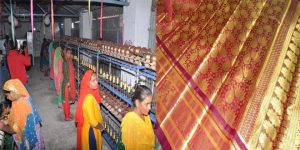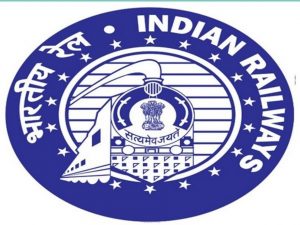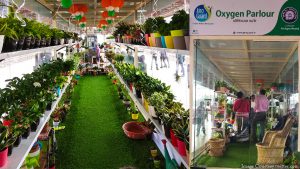 The Khadi and Village Industries Commission (KVIC) opened its first “Patola Saree” silk processing plant at Surendranagar in Gujarat. The aim of the plant is to make silk readily available to Patola saree manufacturers to boost its production. Patola is the trademark saree of Gujarat. They are highly expensive and were once worn only by royal aristocratic families. With the new plant, the comedown. The Patola silk was founded by the Salvi caste (Scheduled) in the states of Maharashtra and Karnataka. They moved to Gujarat in the 12th century in order. The Khadi and Village Industries Commission (KVIC) opened its first “Patola Saree” silk processing plant at Surendranagar in Gujarat. The aim of the plant is to make silk readily available to Patola saree manufacturers to boost its production. Patola is the trademark saree of Gujarat. They are highly expensive and were once worn only by royal aristocratic families. With the new plant, the comedown. The Patola silk was founded by the Salvi caste (Scheduled) in the states of Maharashtra and Karnataka. They moved to Gujarat in the 12th century in order. |
| Source: The Business Standard |
 Indian mountaineer Malavath Poorna, the youngest girl to have climbed the world’s highest mountain Mt. Everest 5 years ago, accomplished another feat by conquering Mt. Vinson Massif, Antarctica’s highest mountain peak (4,987 mts). With this, the 18-year-old becomes the first and youngest tribal woman in the world to set foot on the six tallest mountain peaks across six continents. She has already scaled Mt Everest (Asia, 2014), Mt. Kilimanjaro (Africa, 2016), Mt. Elbrus (Europe, 2017), Mt. Aconcagua (South America, 2019), Mt. Cartsnez (Oceania region, 2019), and now Mt. Vinson Massif (Antarctica, 2019). Indian mountaineer Malavath Poorna, the youngest girl to have climbed the world’s highest mountain Mt. Everest 5 years ago, accomplished another feat by conquering Mt. Vinson Massif, Antarctica’s highest mountain peak (4,987 mts). With this, the 18-year-old becomes the first and youngest tribal woman in the world to set foot on the six tallest mountain peaks across six continents. She has already scaled Mt Everest (Asia, 2014), Mt. Kilimanjaro (Africa, 2016), Mt. Elbrus (Europe, 2017), Mt. Aconcagua (South America, 2019), Mt. Cartsnez (Oceania region, 2019), and now Mt. Vinson Massif (Antarctica, 2019). |
| Source: The Hindu |
 Indian Railways introduced a new “Passenger Information System” at Anakapalle Railway Station of Vijayawada Division in South Central Railway. The comprises “At a Glance Display Board” which gives a glance of the status of various train timings at the Station and “Coach Guidance Display Board” which provides the Coach Composition position of a train. The application aims to provide better features and easy guidance to the passengers and hence providing satisfactory user experience. The system provides automated display information about the trains expected at the station in the next two hours in Trilingual form i.e. in three languages: Telugu, English and Hindi. Indian Railways introduced a new “Passenger Information System” at Anakapalle Railway Station of Vijayawada Division in South Central Railway. The comprises “At a Glance Display Board” which gives a glance of the status of various train timings at the Station and “Coach Guidance Display Board” which provides the Coach Composition position of a train. The application aims to provide better features and easy guidance to the passengers and hence providing satisfactory user experience. The system provides automated display information about the trains expected at the station in the next two hours in Trilingual form i.e. in three languages: Telugu, English and Hindi. |
| Source: The Press Information Bureau |
 Raksha Mantri has launched the “DefExpo 2020” mobile app of the forthcoming DefExpo 2020. The app has been developed by Department of Defence Production, Ministry of Defence (MoD). It provides detailed information about the daily events, participating exhibitors, Defence Public Sector Undertakings (DPSUs), guest speakers of seminars/webinars, publications, and directions of the venues and city weather. The main features of the app constitutes inform, engage and feedback. Raksha Mantri has launched the “DefExpo 2020” mobile app of the forthcoming DefExpo 2020. The app has been developed by Department of Defence Production, Ministry of Defence (MoD). It provides detailed information about the daily events, participating exhibitors, Defence Public Sector Undertakings (DPSUs), guest speakers of seminars/webinars, publications, and directions of the venues and city weather. The main features of the app constitutes inform, engage and feedback. |
| Source: The Press Information Bureau |
 The Council of Scientific and Industrial Research (CSIR) and Central Drug Research Institute (CDRI) signed an agreement to develop new drugs and repurposing of drugs for India and for global markets. The team research work is also joined by Cipla. The Council of Scientific and Industrial Research (CSIR) and Central Drug Research Institute (CDRI) signed an agreement to develop new drugs and repurposing of drugs for India and for global markets. The team research work is also joined by Cipla. |
| What is Drug Repurposing? Drug repurposing is identifying new uses of approved or investigational drugs. It is used to treat common and rare diseases. The main advantage of using repurposing drugs is its reduced development cost, shortened development timings and increased use of de-risked compounds. |
| Cipla association with the institutes The association of Cipla with the institutes has its origin in 1942. Cipla has also worked with the institutes in formulating the famous drugs called chandonium iodide in 1995. The drug is used against neuro muscular blockers. The drug was a huge hit in Indian and global markets. The gugulipid drug used for treating hypolipidemic was also developed under such venture. |
| CSIR The CSIR having a pan-India presence is known for its research and development in S&T areas. It includes oceanography, space physics, drugs, biotechnology, etc. CSIR is currently implementing a mission “New CSIR for New India” to be completed by 2022. The vision of the mission is to enable innovation-driven industry and catalyze inclusive economic development. The institute holds 84th rank among 4851 institutions in the world according to the Scimago institutions ranking world report. |
 In a unique initiative to battle rising air pollution in cities, an ‘Oxygen Parlour’ has been opened at Nashik railway station to provide an experience of breathing clean air to the commuters. The initiative comes with the efforts of Airo Guard in collaboration with the Indian Railways. The concept of Oxygen Parlour is based on the recommendation of the National Aeronautics and Space Administration (NASA). There are around 1500 plants here, so, these plants can directly and effectively bring down the pollution in the air at the railway station and allow the people to breathe cleaner air. In a unique initiative to battle rising air pollution in cities, an ‘Oxygen Parlour’ has been opened at Nashik railway station to provide an experience of breathing clean air to the commuters. The initiative comes with the efforts of Airo Guard in collaboration with the Indian Railways. The concept of Oxygen Parlour is based on the recommendation of the National Aeronautics and Space Administration (NASA). There are around 1500 plants here, so, these plants can directly and effectively bring down the pollution in the air at the railway station and allow the people to breathe cleaner air. |
| Source: The News on AIR |
 Prof. Krishnasamy VijayRaghavan, Principal Scientific Adviser to the Govt of India launched a national program called “EChO Network” in New Delhi. The EChO network provides a template for cross-disciplinary leadership in India. The purpose of this programme is to bring citizens, govt etc to solve problems in the areas of research knowledge, and awareness of Indian ecology and the environment. Prof. Krishnasamy VijayRaghavan, Principal Scientific Adviser to the Govt of India launched a national program called “EChO Network” in New Delhi. The EChO network provides a template for cross-disciplinary leadership in India. The purpose of this programme is to bring citizens, govt etc to solve problems in the areas of research knowledge, and awareness of Indian ecology and the environment. |
| Source: The News on AIR |
 Integral Coach Factory (ICF) of Indian Railways has produced its 3000 Coaches in record 215 days. The 64-year-old production unit beat its own record by reducing the number of working days to achieve the target of making 3,000 coaches in 289 days in 2018-19 to 215 days this year and retained its position as the largest coach- maker in the world. Integral Coach Factory (ICF) of Indian Railways has produced its 3000 Coaches in record 215 days. The 64-year-old production unit beat its own record by reducing the number of working days to achieve the target of making 3,000 coaches in 289 days in 2018-19 to 215 days this year and retained its position as the largest coach- maker in the world. |
| Source: The Hindu |
 The traditional 40-day period of harshest winter in Kashmir known in the local parlance as ‘Chillai-Kalan’ began on 21 December 2019, with the upper reaches of valley receiving snowfall. Chillai-Kalan period which is known for sub-zero temperatures, frozen lakes and river, will end on 31 January 2020. The traditional 40-day period of harshest winter in Kashmir known in the local parlance as ‘Chillai-Kalan’ began on 21 December 2019, with the upper reaches of valley receiving snowfall. Chillai-Kalan period which is known for sub-zero temperatures, frozen lakes and river, will end on 31 January 2020. |
| About ‘Chillai-Kalan’ These 40 days are when the chances of snowfall are highest and the maximum temperature drops considerably. During Chillai-Kalan, the weather in Kashmir valley continues to remain dry and cold with minimum temperatures hovering below freezing point and the snow during this 40-day period freezes and lasts longer. Even after Chillai-Kalan ends, the cold wave, however, continues even after that. Therefore Chillai-Kalan is followed by a 20-day-long period called ‘Chillai-Khurd’ (small cold) that occurs between January 31 and February 19 and a 10-day-long period ‘Chillai-Bachha’ (baby cold) which is from February 20 to March 2. |
 On December 18, 2019, the FSSAI (Food Safety Standards Association of India) announced that the front of packet labeling will be delinked from its general labeling regulation. The move is being implemented in order to make the consumers aware of food products that are high in fat, salt and sugar content. On December 18, 2019, the FSSAI (Food Safety Standards Association of India) announced that the front of packet labeling will be delinked from its general labeling regulation. The move is being implemented in order to make the consumers aware of food products that are high in fat, salt and sugar content. |
| Highlights The authority has decided that the front of the pack and the general labeling regulations must be de-linked. The authority will soon provide threshold limit of sugar, salt and fat in food products. The Front of Packet Labeling helps to identify the green (vegetarian foods ) and red (non-vegetarian foods). It also includes pictorial representation of nutrients, food group nutrients and summary indicators, etc. This can at times be misleading as consumers fail to give a detailed read about the product. |
| Front of Pack Labelling FoPL is a policy tool that help consumers to make healthier food choices. It was included for the first time in draft Food Safety and Standards (Labelling and Display Regulations), 2019. It aims at creating awareness to consumers about products that are high in sugar, fat and salt content. There are two aspects of FoPL namely threshold limit and the way the limit is depicted on packets of processed food. |
| Why the delinking? Delinking is breaking the connection or cutting off. On December 17, the Centre for Science and Environment released a report based on its study on packaged food. The Centre tested 33 foods, 19 fast foods, four different types of wrapped sandwiches, fried chicken, pizza, etc. The results showed high content of salt and fat in the food items. The thresholds that the companies follow were not up to Indian Standards. Therefore, FSSAI has delinked the FoPL standards from labelling regulations and will set new threshold. |
You need to login to perform this action.
You will be redirected in
3 sec
